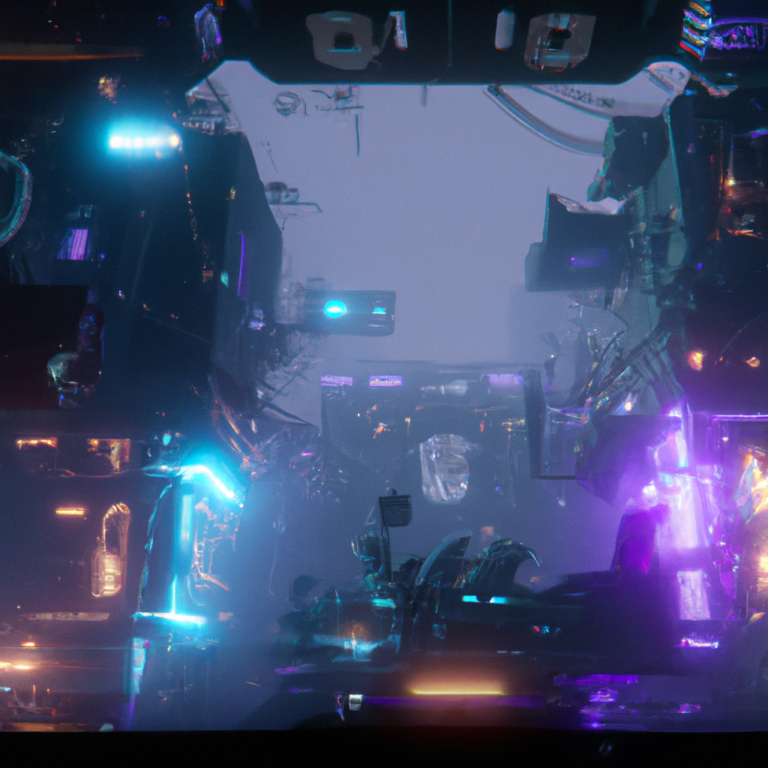“Revolutionizing the Gaming World: Exploring the Impact of AI Advancements on Game Design and Player Interaction”
In recent years, the rapid advancements in artificial intelligence (AI) have transformed various industries and sectors, with the world of gaming being no exception. The impact of AI on game design and player interaction is significant, revolutionizing how developers create games and how players engage with them. In this blog post, we’ll explore the various ways AI advancements have influenced game design and player interaction, including procedural generation, dynamic difficulty adjustment, and more immersive gameplay experiences.
Procedural Generation
One of the most significant impacts of AI advancements on game design is the rise of procedural generation. Procedural generation refers to the creation of game content algorithmically, rather than manually, allowing for the generation of vast, complex, and unique game worlds without the need for extensive manual input from designers. By utilizing AI algorithms, procedural generation can create environments, characters, and quests that are entirely unique to each player’s experience.
This has several advantages for both developers and players. For developers, it saves time and resources that would be spent on designing extensive game worlds and content. For players, it offers an endless and diverse gaming experience, ensuring that no two players will have the same experience, thus increasing replayability and long-term engagement.
Dynamic Difficulty Adjustment
AI advancements have also made their way into improving how games adapt to the skill level of individual players. Dynamic difficulty adjustment (DDA) refers to a game’s ability to modify its difficulty in real-time based on the player’s skill, ensuring that they are consistently challenged without becoming overwhelmed or frustrated.
DDA algorithms can take into account a wide range of factors, such as a player’s performance, playstyle, and gaming preferences, to provide a customized gaming experience that caters to the individual. This has a significant impact on player interaction, as it provides a more enjoyable and personalized experience and helps to prevent players from becoming frustrated and disengaging from the game.
Improved NPC Behavior
Another area where AI advancements have had a substantial impact is in the development of Non-Playable Characters (NPCs). Traditionally, NPCs in games have followed basic and predictable behavior patterns, which can lead to a less immersive gaming experience. With the integration of advanced AI algorithms, NPCs can now exhibit more complex and realistic behaviors, providing a more engaging and natural player interaction.
For example, improved AI can enable NPCs to learn from their interactions with the player, adapt their strategies, and even collaborate with or compete against the player. This not only enhances the overall gaming experience but also allows players to develop deeper connections with NPCs, making the game world more immersive and emotionally engaging.
Ethical Considerations
While AI advancements in game design and player interaction provide many benefits, they also raise some ethical concerns. For instance, the use of dynamic difficulty adjustment can potentially lead to the exploitation of player behavior and preferences to encourage excessive playtime or in-game purchases. Additionally, as NPCs become more lifelike and engaging, questions surrounding the ethical treatment of these digital entities may arise.
As AI continues to play an increasingly significant role in game design and player interaction, it’s crucial for developers to address these ethical concerns and ensure that AI is utilized responsibly and ethically to provide a positive gaming experience for all.
In conclusion, the impact of AI advancements on game design and player interaction is substantial, revolutionizing the way games are developed and experienced. From procedural generation and dynamic difficulty adjustment to more immersive NPC behavior, AI has opened the door to new possibilities and opportunities for both developers and players alike. As we move forward, it will be essential for the gaming industry to continue embracing AI advancements while considering the ethical implications that come with them, ensuring that the future of gaming is both innovative and responsible.







